Keywords: Indigenous Rights
There are more than 200 results, only the first 200 are displayed here.
-
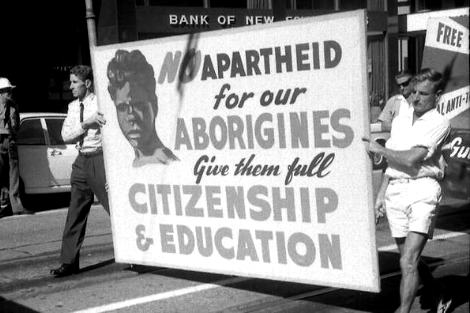
AUSTRALIA
An interesting aspect was the shift in the mindset and understanding among non-indigenous Australians regarding Aboriginal rights. To note the way in which one dominating western culture moved toward recognising the rights of another culture that was oppressed by it is quite remarkable. We should consider those aspects of the mentality shift (from both cultures and their understanding of what the 1967 referendum meant) if we are ever to revisit that type of federal movement again.
READ MORE 
-

RELIGION
- Frank Brennan
- 17 May 2017
As the Church of 2030, we need to be more attentive to the contemplation of believers and our experience of spiritual realities, as well as the preaching of the church. Pope Francis has no time whatever for the notion of the Church as a perfect society. But, there is no way that Francis wants to abandon the ideals and the commitment to truth and justice so well exemplified by his predecessors John Paul II and Benedict.
READ MORE
-
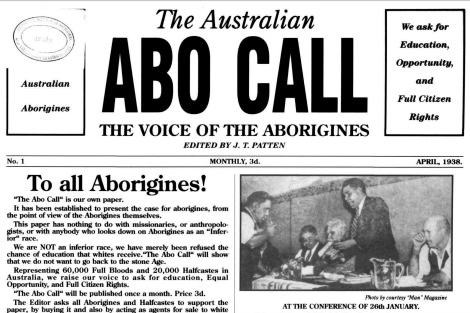
AUSTRALIA
- Dani Larkin
- 23 March 2017
9 Comments
In the face of historically low levels of Indigenous representation in our parliaments, the Indigenous caucus between Commonwealth, State and Territory Labor representatives points to some progress. It is aimed at increasing Indigenous voter engagement figures, increasing Indigenous Labor candidacy, and developing strategic plans that encourage Indigenous students to become young leaders in Parliament. Those are all necessary and noteworthy causes. But we have a long way to go.
READ MORE 
-
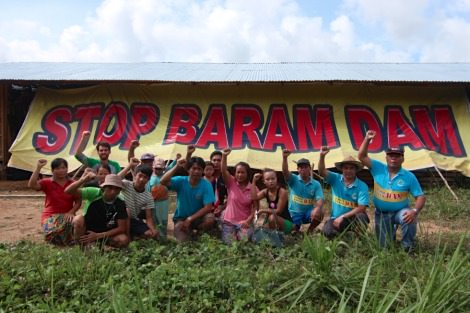
ENVIRONMENT
- Fiona McAlpine
- 17 March 2017
6 Comments
One year ago, a remarkable win for indigenous rights took place in a little-reported corner of Asia. On the island of Borneo, rainforest communities won a long fight against a hydroelectric dam that was to be built on their land. After more than two years of muddy resistance, the dam plans were shelved, and land rights were restored to the indigenous population. This was a landmark win, in more ways than one.
READ MORE 
-
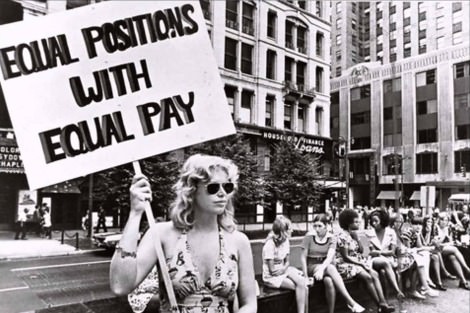
AUSTRALIA
- Neve Mahoney
- 07 March 2017
5 Comments
International Women's Day was founded in women's rights movements across Europe, demanding better labour conditions as well as calls for suffrage. So though these days it is primarily about celebrating the achievements of women, it is rooted in feminist protest and activism. In the spirit of the 2017 theme #BeBoldForChange, I think we should change it up a little. While it is important to look back on the achievements of feminism, we should also look back to learn how to be better for the future.
READ MORE 
-

ARTS AND CULTURE
- Sandra Renew
- 20 February 2017
4 Comments
Observing the decades long incident is unbearable - although they have fallen beautifully time is not on their side, their ideals are consigned to fire. But do we care so little that when the fates convene and humans fail sumo-sized jelly fish and yellow crazy ants and ubiquitous spiders will be all that's left? Do we care so little and think we are free of all our debts? Did we think we were never so needy as to sell our dreams?
READ MORE 
-

RELIGION
- Frank Brennan
- 17 February 2017
3 Comments
The commission's forensic scrutiny of past actions of church officials in no way constitutes an interference with the freedom of religion. Its spotlight is to be welcomed, provided only that it is shone on a truly representative sample of all institutions which have been found wanting and provided the same light filter is applied to all institutions. I do however have a problem with the commission making findings on issues like the want of compassion when those findings are made only against a Church.
READ MORE
-
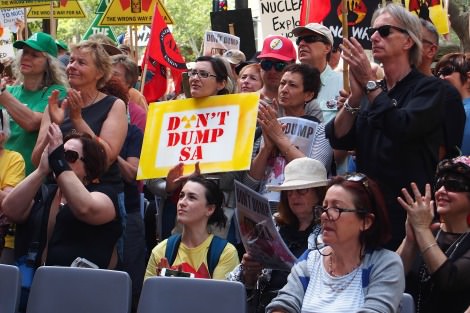
ENVIRONMENT
- Michele Madigan
- 13 February 2017
9 Comments
'It will be your artists: the poets, painters, actors, dancers, musicians, orators - they will be the ones to lead the changes.' It was one of the many international invited guests, a Maori woman speaker, who made this prediction to the huge 40,000 strong crowd that marched to Hyde Park, Sydney, on 26 January 1988. In South Australia almost 30 years later, this prophecy continues to unfold in the high-stakes battle for country that surrounds the proposed nuclear waste dump.
READ MORE 
-
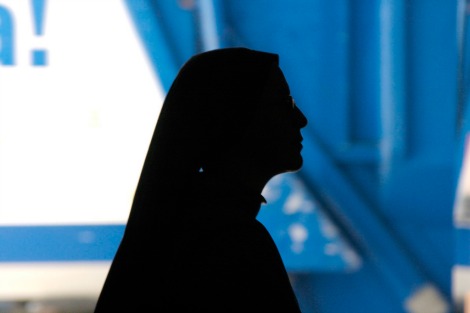
RELIGION
- Julie Davies
- 07 February 2017
20 Comments
Sister Barbara taught me in my fifth and sixth years. She had a large multi-grade class, yet she found time to realise I wasn't 'a bit slow' but was actually half-blind, partially deaf and bored witless. She ensured I was placed close to the front where I could hear, and arranged my first eye examination. Sister Barbara also sent away for high school English books just for me and that year this supposedly 'slow' child came first in class. These acts changed the course of my life.
READ MORE 
-
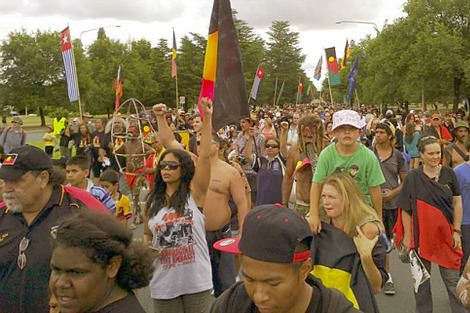
AUSTRALIA
- Celeste Liddle
- 23 January 2017
27 Comments
For many years I felt that by changing the date we might come to a more inclusive national celebration. However the past few years of Indigenous activism have left me cynical. The things we were fighting for decades ago are very similar to the things we're still fighting for. Australia has not acknowledged and rectified its history; rather it seems content to reinforce its amnesia. It's therefore unlikely I will be able to stop protesting this celebration, regardless of the day it's held upon.
READ MORE 
-

AUSTRALIA
- Kate Galloway
- 13 January 2017
4 Comments
The Minister has committed to improving youth detention facilities, the appointment of 100 more staff, and revision of Victoria's youth detention policy. But in doing so, she has sheeted home blame to the former government, and has accused lawyers for the children of pandering to ideology. The government's discourse continues the tough-on-crime narrative rather than acknowledging the causes and contexts of juvenile offending and the consequences of appalling facilities on the youth who are detained.
READ MORE 
-
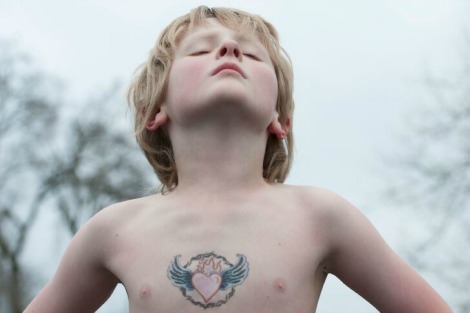
AUSTRALIA
- Ann Deslandes
- 06 December 2016
6 Comments
I'm a 36 year old white Australian who grew up middle class in suburban Adelaide. I can count on one hand the number of households in the streets I lived on which were always-already made up of a mum-dad-kids scenario. The research on children's attachment, development and resilience shows kids need meaningful, culturally appropriate relationships with caring and competent adults in order to thrive as human beings. These adults can be pretty much anyone as long as they fit that bill.
READ MORE 